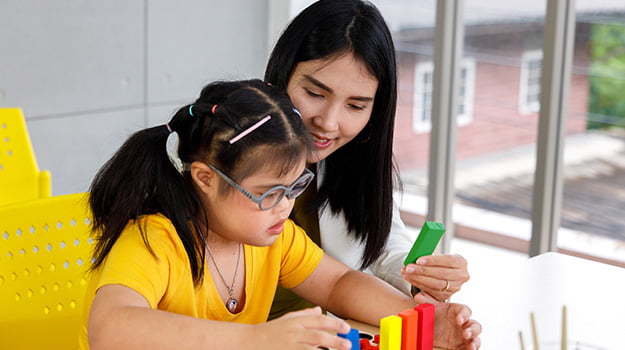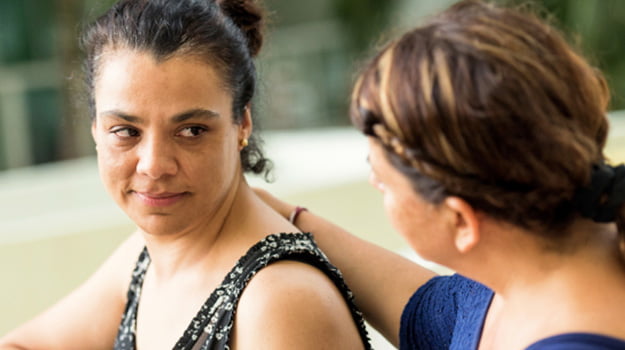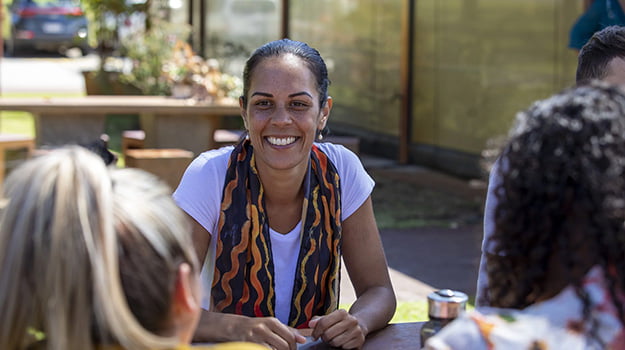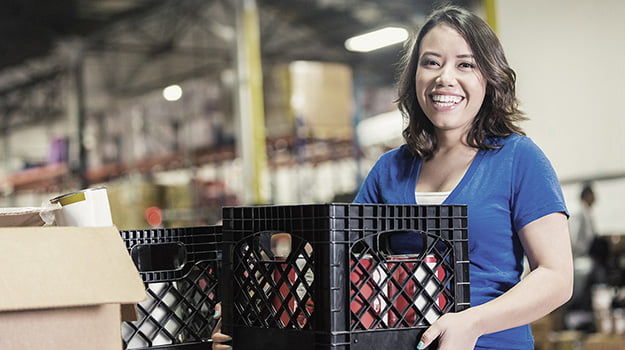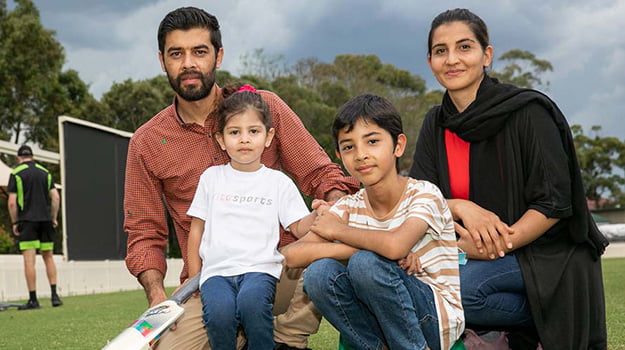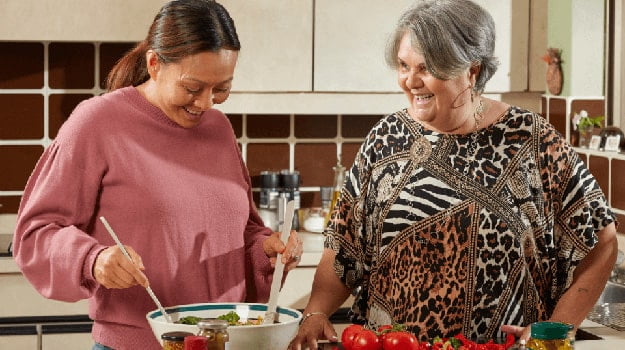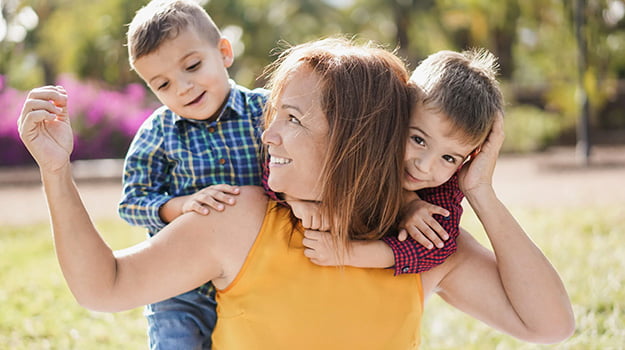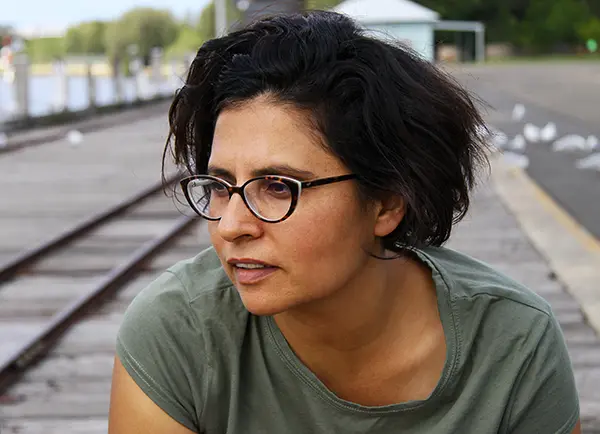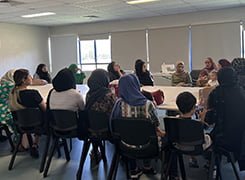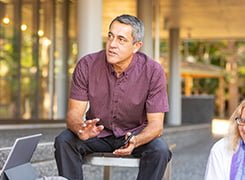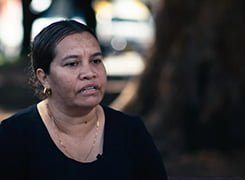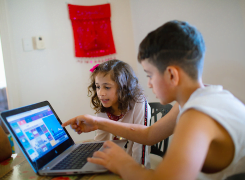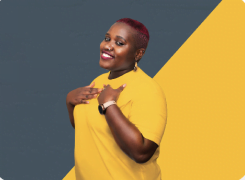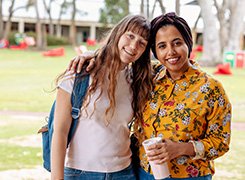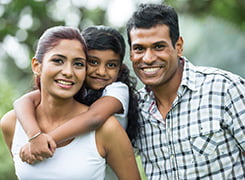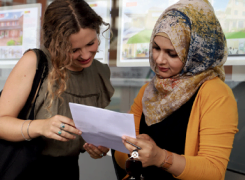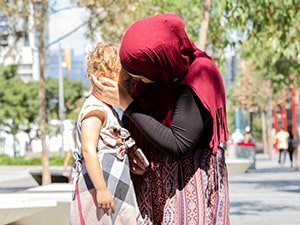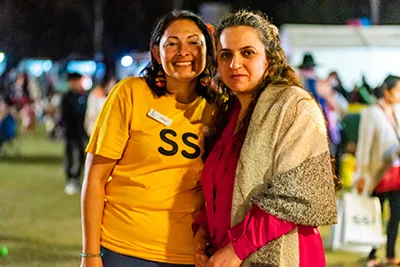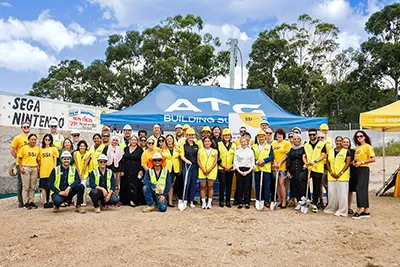Migration is an incredibly complex and personal experience, often shaped by conflict, trauma, and loss.
For women like Ukrainian counsellor Olga, this journey also intersects with a range of unique challenges tied to personal challenges and specific of her qualification and profession. That was a place where she transformed individual refugee experience into a powerful tool to help other newcomers.
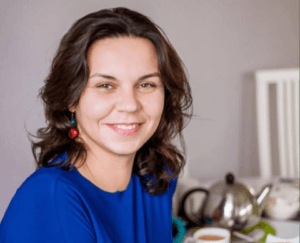 In 2022, after the war broke out, Olga fled her home with her family. Seeking safety for her children, she arrived in Australia and began rebuilding their lives in a new country.
In 2022, after the war broke out, Olga fled her home with her family. Seeking safety for her children, she arrived in Australia and began rebuilding their lives in a new country.
Her journey was not easy, like that of many women refugees, but her new life required and highlighted the importance of an attentive and gentle approach in resettlement services.
Olga said she felt less alone after she began working with her case manager through SSI’s Humanitarian Settlement Program (HSP), which provides tailored services designed to meet the unique needs and strengths of individuals and families resettling in Australia as refugees.
“My case worker, Munira, gave me a lot of attention and time, offering everything I could possibly need. I felt supported in everything I did through the program,” she said.
Olga found that participating in the programs’ orientation sessions not only helped her learn about the new country her family now called home but also helped her to connect with other members of the Ukrainian community in Australia, fostering a better sense of belonging.
“These sessions were incredibly helpful; I still remember the knowledge I gained from them years ago. It was an amazing start for my professional growth in Australia,” she said.
As an experienced counsellor, who was waiting for her qualification being recognised, Olga was happy to facilitate and deliver groups about domestic, sexual, and family violence (DFSV) awareness for the Ukrainian community where support for newly arrived women was a key focus. She was also grateful to have the opportunity to share her expertise and facilitation skills to support other refugees during the orientation sessions and groups for the families in culture transition.
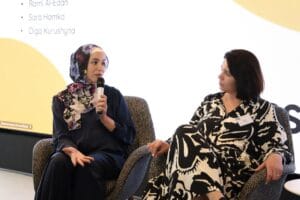 “It’s essential for newly arrived refugees to have a platform where they can address issues and learn how to protect themselves and their families. Everyone deserves to be safe, especially at home, even if it’s very new,” Olga said.
“It’s essential for newly arrived refugees to have a platform where they can address issues and learn how to protect themselves and their families. Everyone deserves to be safe, especially at home, even if it’s very new,” Olga said.
She secured employment opportunities with the support of SSI’s Refugee Employment Support Program, along with her dedication and ability to navigate her networks and community.
Olga worked tirelessly to have her overseas qualification recognised and secure the right to work as a counsellor in Australia. All while studying and managing full responsibility for her family.
Later she secured a role as an employment facilitator with RESP and found out that SSI’s gender-sensitive services also include wellbeing assessment tools designed to identify potential trauma experiences, such as DFSV, and assess the risks women may face during resettlement. It was important to have those tools in her work. “By identifying such risks early, our specialists can intervene and provide appropriate support and resources,”she said.
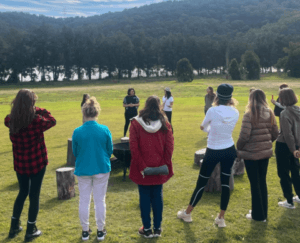 Like many refugee women leading their household, Olga’s economic goal to gain employment was crucial to building her sense of independence. However, despite her extensive background in psychotherapy, she initially struggled to find employment due to her visa status.
Like many refugee women leading their household, Olga’s economic goal to gain employment was crucial to building her sense of independence. However, despite her extensive background in psychotherapy, she initially struggled to find employment due to her visa status.
With support from SSI’s Ignite Small Business Start-ups, Olga’s combined her skills and networks to establish her own business, OK Club, running mindfulness workshops for refugees online and in person, including a Women’s Circle retreat for Ukrainians.
“What I was trying to achieve was difficult, but with the support I had at the time, it was possible,” she said.
In 2024, Olga began working full-time with NSW Service for the Treatment and Rehabilitation of Torture and Trauma Survivors (STARTTS) as a therapeutic counsellor, offering therapeutic support to other people who have navigated forced displacement.
“Such a beautiful place we call our new home. I adore the equality of genders in Australia. It is amazing that as professionals we have programs like Gender Equity Strategy to support our clients. I take a gendered approach to migration and resettlement, ensuring everyone receives the support needed to thrive, rebuild their lives, and contribute meaningfully.” Learn more.
We have welcomed news that the Australian government will make its community sponsorship pilot a permanent program, marking an important step forward in strengthening Australia’s humanitarian commitments.
(more…)The US suspension of its refugee resettlement program for ‘national security reasons’ sets a concerning precedent that risks creating harm and uncertainty for some of the world’s most vulnerable people.
(more…)
Businesses can help unlock a talent pool of more than 110,000 jobseekers with disability and do their part in building disability-positive workplaces by making four practical commitments, according to a new report produced by non-profit SSI.

Logan locals have received a sneak peek at a new site that is being transformed into a game-changing community facility to get residents job ready in Logan Central, formed in partnership between the Queensland Government and non-profit SSI.
(more…)Leading non-profit SSI congratulates David Crisafulli on becoming Queensland’s 41st Premier and the Liberal National Party on forming government, following this past weekend’s state election.

SSI has operated in Queensland since 1984, initially under the name Access Community Services. Through support in settlement, education and training, health and wellbeing, and dedicated commitment to community engagement, our organisation has been connecting people with opportunities and creating a place of belonging in Queensland for 40 years.
SSI CEO Violet Roumeliotis said it was heartening to see the Crisafulli government’s commitments to strengthening these communities, including allocating $5 million to Multicultural Connects Grant to build or upgrade community and sport facilities.
“This is an area of particular benefit for young people, something we see through our Multicultural Sports and Community Centre, which has a focus on disengaged youth, mental health and social cohesion.
“These spaces bring people together, providing a hub where community members can come together around a shared interest.”
Ms Roumeliotis also commended the incoming government for taking steps to strengthen Queensland’s vibrant community services sector, including by matching Labor’s commitment of $1.5 million in funding over four years to the Ethnic Communities Council of Queensland.
“In addition, the commitment to introduce new minimum contract terms for community sector contractual arrangements will ensure greater stability and certainty for our sector,” she said.
As a leading provider of human services designed to overcome inequality, SSI also welcomes the incoming government’s focus on the needs of children and young people.
This includes a $27 million professional foster carer pilot for children with complex needs; a new carer supervision model for residential out-of-home care and broader reform of the system; and an early intervention plan to keep at-risk teens out of crime.
Ms Roumeliotis acknowledged the efforts of the outgoing Miles Government to support communities to overcome inequality, including increasing funding to the Logan Maternity Hub, which supports refugee and migrant women through pregnancy and the first few months of motherhood.
“The outgoing government also funded a critical domestic and family violence (DFV) program, 99 Steps, which supports culturally and linguistically diverse women experiencing DFV.
“At present, this program only operates in Logan, but we hope that with continued government support, this can be expanded to other communities with high migrant and refugee cohorts,” she said.
SSI looks forward to working with the new Premier and his Government to continue to deliver and grow the services our joint constituencies’ need in order to overcome inequality and realise their full potential.
Significant recommendations in a parliamentary report tabled this week offer a call to action that would revitalise Australia’s migration policy, particularly when it comes to activating skilled migrants who are already in the country but blocked from using their full skillset, according to leading non-profit organisation Settlement Services International (SSI).
(more…)Business groups, unions, social services and community organisations have united to demand changes to federal workforce strategy that would address skills shortages crippling Australian communities, families and businesses.
(more…)Learning and development in the early years of a child’s life sets the foundation for their future trajectory. The Productivity Commission’s final report on the Early Childhood Education and Care inquiry, released today, is a welcome step towards levelling the playing field for all children, particularly in reducing developmental disparities among culturally and linguistically diverse (CALD) children.
The report outlines a vision for a universal Early Childhood Education system that prioritises improved affordability, inclusion, and flexibility. This is key to securing Australia’s social, cultural, and economic future.
We know from our own work with communities across Australia that children from CALD backgrounds are more likely to be developmentally vulnerable when starting school and less likely to access early childhood education.
This is also highlighted in our Stronger Starts, Brighter Futures II research, conducted jointly with researchers at Education Futures, University of South Australia, which aligns with the Productivity Commission’s findings, particularly on the observations on developmental vulnerability.
Socio-economic disadvantage is a large driver of developmental vulnerability for all children. This plays a huge role in shaping the developmental outcomes of children from CALD communities in particular as they disproportionately experience socio-economic disadvantage, according to Stronger Starts.
Almost a third of children from CALD backgrounds living in the most disadvantaged socio-economic areas were developmentally vulnerable compared to 1 in 6 of their peers living in the most advantaged areas.
We are heartened that the Productivity Commission’s recommendations align with those from our research, particularly in calling for greater investment to support the inclusion of CALD children and their families.
We urge the government to consider these recommendations and prioritise investment in place-based services that have proven effective in supporting developmentally vulnerable children, which have been advocated for in both the Commission’s report and our research.
We also welcome the report’s specific recommendations to address both financial and non-financial barriers to participation for CALD children, and to invest in programs that enhance cultural safety and responsiveness in services, potentially through the use of bilingual and bicultural educators.

